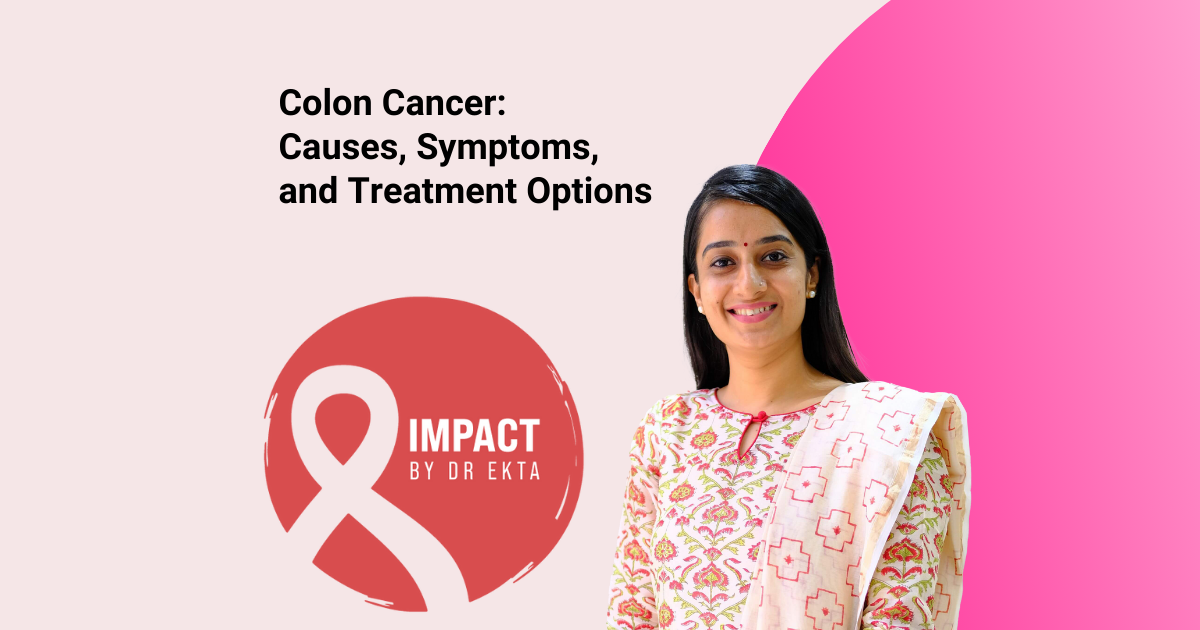As an oncologist, I’ve dedicated my career to understanding, diagnosing, and treating various types of cancer. One type that I encounter frequently is colon cancer. Colon cancer, also known as colorectal cancer when it involves both the colon and rectum, is a significant health concern that affects many individuals worldwide. In this blog, I aim to share my insights and experiences with colon cancer, discussing its causes, symptoms, diagnostic methods, treatment options, and prevention strategies.
What is Colon Cancer?
Colon cancer originates in the colon, the final part of the digestive tract. It usually begins as small, noncancerous clumps of cells called polyps that form on the inside of the colon. Over time, some of these polyps can become cancerous. The transformation from a benign polyp to cancer can take several years, which is why early detection through regular screening is crucial.
Causes and Risk Factors
The exact cause is not entirely understood, but certain factors increase the risk of developing it. These risk factors include:
- Age: Most cases of colon cancer occur in people over 50, although it can occur at any age.
- Family History: A family history of colon cancer or polyps can increase the risk.
- Genetic Syndromes: Inherited syndromes such as Lynch syndrome and familial adenomatous polyposis (FAP) are significant risk factors.
- Diet: A diet high in red and processed meats and low in fiber, fruits, and vegetables can contribute to the development of colon cancer.
- Sedentary Lifestyle: Lack of physical activity is a known risk factor.
- Obesity: Excess body weight has been linked to an increased risk of colon cancer.
- Smoking and Alcohol: Long-term smoking and heavy alcohol consumption are associated with higher risks.
- Diabetes: People with diabetes and insulin resistance are at a greater risk.
Symptoms of Colon Cancer
One of the challenges in diagnosing early is that it often doesn’t cause symptoms in its initial stages. However, as the disease progresses, symptoms may include:
- Changes in Bowel Habits: Persistent diarrhea, constipation, or a change in the consistency of stools.
- Rectal Bleeding: Blood in the stool or rectal bleeding can be a sign of colon cancer.
- Abdominal Discomfort: Cramping, gas, or pain in the abdomen.
- Feeling of Incomplete Evacuation: A persistent urge to have a bowel movement despite having just done so.
- Weakness or Fatigue: This can be due to iron deficiency anemia caused by blood loss.
- Unexplained Weight Loss: Losing weight without a known cause.
Diagnostic Methods
As an oncologist, my goal is to detect colon cancer as early as possible when treatment is most effective. Several diagnostic tests are used to identify colon cancer:
- Colonoscopy: This is the most comprehensive screening method. A long, flexible tube with a camera is used to examine the entire colon and rectum. If polyps are found, they can often be removed during the procedure.
- Biopsy: If a suspicious area is found during a colonoscopy, a small sample of tissue may be taken for analysis.
- Imaging Tests: CT scans, MRIs, and ultrasounds can help determine the extent of the cancer and whether it has spread.
- Stool Tests: Tests such as the fecal occult blood test (FOBT) and fecal immunochemical test (FIT) can detect blood in the stool, which may be a sign of colon cancer.
- Blood Tests: While blood tests cannot diagnose colon cancer, they can provide information about overall health and organ function.
Treatment Options
The treatment of colon cancer depends on the stage of the disease, the patient’s overall health, and personal preferences. Common treatment options include:
- Surgery: This is often the primary treatment for colon cancer. The goal is to remove the cancerous part of the colon and, in some cases, nearby lymph nodes.
- Chemotherapy: Uses drugs to destroy cancer cells. It can be used before surgery to shrink tumors or after surgery to kill remaining cancer cells.
- Radiation Therapy: Uses high-energy radiation to kill cancer cells. It is often used in combination with chemotherapy, especially for rectal cancer.
- Targeted Therapy: Focuses on specific abnormalities within cancer cells. Drugs can block these abnormalities and kill cancer cells.
- Immunotherapy: Uses the body’s immune system to fight cancer. This approach is typically used for advanced colon cancer or when other treatments have failed.
Prevention Strategies
Preventing colon cancer involves lifestyle changes and regular screenings. Here are some strategies that I recommend to my patients:
- Regular Screening: Starting at age 50, or earlier if there are risk factors, regular screening is crucial. Colonoscopy is the gold standard, but other methods like stool tests can also be effective.
- Healthy Diet: Eating a diet rich in fruits, vegetables, and whole grains while limiting red and processed meats can reduce the risk of colon cancer.
- Exercise: Regular physical activity helps maintain a healthy weight and reduces cancer risk.
- Avoid Smoking and Limit Alcohol: Quitting smoking and drinking alcohol in moderation can significantly lower cancer risk.
- Maintain a Healthy Weight: Obesity is a risk factor, so maintaining a healthy weight is important.
Conclusion
As an oncologist, I see firsthand the impact that colon cancer can have on patients and their families. Early detection and treatment are crucial for improving outcomes. Understanding the risk factors, recognizing the symptoms, and adhering to regular screening guidelines can significantly reduce the risk of developing colon cancer. By making informed lifestyle choices and staying vigilant about our health, we can take proactive steps to prevent this disease and improve our overall well-being.
Colon cancer is a serious but often preventable disease. By staying informed and proactive, we can make a significant difference in our own health and the health of our loved ones. Remember, early detection saves lives.

